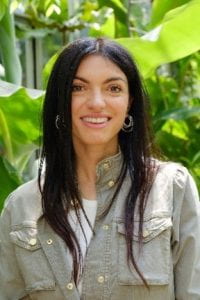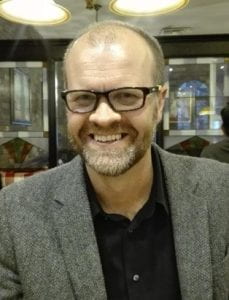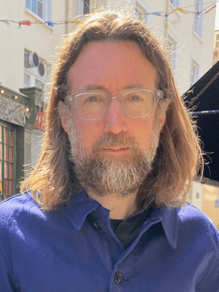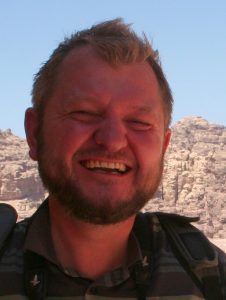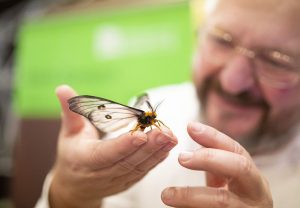In the next in our series of conversations with our University Enterprise Fellows, we spoke with Professor Nicholas Howden of the School of Civil Aerospace and Design Engineering at the University of Bristol.

A Diverse Background Across Academia and Industry
Nicholas’ academic background straddles multiple disciplines, starting with a general engineering degree, where he specialized in civil engineering. He recalls he was particularly inspired by professors who had practical experience in industry, which he found enriched their teaching and made it more accessible and exciting. This blend of theory and practice became a cornerstone of Nicholas’s approach to research and problem-solving.
Nicholas’ undergraduate degree was followed by a PhD in hydrology, hydrogeology, and hydrogeochemistry and, after completing his PhD, he worked as a hydrologist for contaminated land consultants and the former technical arm of the Coal Board as a hydrogeologist. His work involved addressing legacy issues associated with coal mining and how these impact water quality. This time in industry provided him with in depth understanding of the complexity of the water system and the many factors which can impact water quality, combined with hands-on practical experience of tackling environmental problems.
After this period in practice, Nicholas returned to academia, first at Cranfield University in the National Soil Resources Institute, where he expanded his understanding of soil and land use, and later at the University of Bristol. While his disciplinary home at Bristol remains in engineering, his expertise would make him equally at home in Earth sciences, physical geography, or environmental sciences. Nicholas’ diverse background across academic research and industry equipped him with a very pragmatic, yet embracing of complexity, perspective on environmental challenges.
The University Enterprise Fellowship: A New Frontier
Nicholas’s work as one of our 2024/25 University Enterprise Fellows focuses on the impact of agriculture on water quality. Techniques used in agriculture over the past 100 years or more have significantly affected the chemistry of water in river catchments, sometimes with long lags and complex interrelations. For example, he describes how during WWII, the UK abruptly increased arable land use, leading to a massive release of nitrogen and carbon into groundwater and rivers. The effects of this were seen decades later, highlighting the long-term impact of agricultural practices. Agricultural chemicals, including fertilizers and pesticides, move into and through every component of the hydrologic system—air, soil, soil water, streams, wetlands, and groundwater. Increased levels of nutrients from fertilizers can stimulate algal blooms, affect stream health, and increase treatment costs for drinking water. This has implications for drinking water, ecological value, and estuarine environments. Nicholas’s research aims to understand how agricultural practices propagate through the system, often with long delays, and in his enterprise fellowship he seeks to create a credible and actionable plan as to how his and others’ research can be applied in practice to protect water supplies now and in the future.
As a University Enterprise Fellow, Nicholas continues this theme of addressing complex environmental issues with a blend of fundamental science and engineering coupled with an industry-informed grasp of the many pragmatic considerations of understanding and influencing water quality. He is using the fellowship to “deep dive” into the wider context of what influences water quality, and in doing so is engaging with a wide range of stakeholders involved in the water industry with the ultimate aim to provide robust evidence to help industry and regulators make informed decisions to ensure water security. He describes the University Enterprise Fellowship as transformative, in that it has given him protected time and “permission” to step away from some of his regular teaching and research activities and invest substantial time to really listen to industry stakeholders, and understand their context, and the most pressing problems to solve. He stresses the differentiation between this fellowship and research; the UEF is much more about building relationships and understanding the viable paths by which ideas and solutions might be implemented in practice.
Collaboration and Policy Implications
Managing these issues requires understanding historical practices and predicting future impacts. The challenge is to provide evidence for practical solutions, whether it’s building treatment works or modifying agricultural practices. Nicholas’s work is crucial in helping industry and regulators navigate these complex challenges.
Nicholas’ current principal external collaborator is a water company, but his work has broader implications for policy and industry practices. Policy is usually based on evidence, and the complexity of these issues requires long-term planning beyond typical five-year cycles. The data science environment has changed, with an expectation for real-time monitoring and decision-making. However, real-time monitoring for water quality is complex and requires validation.
Listening, Learning, and Building Networks
One of the key differences between Nicholas’s enterprise fellowship and his regular academic role is the emphasis on listening and learning. Nicholas humorously notes that being an enterprise fellow gives him time off from the day job of a professor, which is to “profess.” Instead of speaking, he has the time to prioritise listening and figuring out which questions he needs to ask to really understand the water industry’s challenges. The fellowship has given him the time to understand the concerns of industry stakeholders, hear how they think about problems, and explore practical solutions. This understanding is crucial for providing effective solutions and building relationships.
Nicholas’s journey through the fellowship has involved building networks, strengthening existing contacts and making new ones. One thing he attributes his extensive network to is being a trustee of CIWEM (Chartered Institution of Water and Environmental Management), which provided him with excellent contacts that he would not otherwise have encountered in his regular academic role. He highlighted the importance, particularly for early career academics, of taking roles that could be seen as peripheral to one’s main academic career but can bring unanticipated benefits like contacts and insights. Nicholas recommends that more junior academics take such opportunities, although in a measured and intentional way, carefully picking and choosing the opportunities that really interest them.
Looking Ahead
By the end of his fellowship, Nicholas hopes to have an agreement with a company about the next 18 months to three years of work, including a draft business plan. He also aims to identify initial projects where his work can add value and involve other university colleagues in the future.
Final reflections
Nicholas Howden’s use of the University Enterprise Fellowship is not an entrepreneurial, spin-out journey, as some are – rather his is a showcase of listening and learning, and collaboration with industry stakeholders. His work addresses complex environmental issues with a blend of theoretical knowledge and practical experience, providing robust evidence and practical solutions to help industry and regulators make informed decisions. With a focus on historical perspectives, policy implications, and building networks, Nicholas’s work is paving the way for a more sustainable future.
We’ll have one more UEF interview ahead of this year’s Festival of Enterprise. If you’ve enjoyed learning more about this year’s cohort and their activities, sign up to attend via Develop and hear more from our UEFs and our Early Career Enterprise Fellows!



